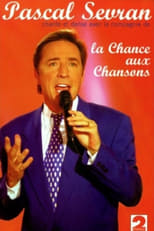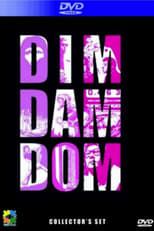Annie Philippe
¿Quién es Annie Philippe?
Her first EP in 1965 included "Vous pouvez me dire" (a version of "He Don’t Want Your Love Anymore", first recorded by Lulu) and "Une rose", a version of "Love Me Tender". She had some success in the French pop charts over the next few years with songs including her version of "Baby Love", the girl group influenced "J’ai raté mon bac", the more downbeat "Ticket de quai", and "Je chante et je danse" which featured a jazzy Hammond organ arrangement. In 1966 she moved to the Philips label, and had hits in France with "Mes amis, mes copains", "C’est la mode", "Le mannequin", and "Tu peux partir où tu voudras", a version of John Phillips' song "Go Where You Wanna Go". She also started writing her own material, including "Lettre pour Annie". Her last chart hit came in 1967 with "Les enfants de Finlande".
Her style was often compared to France Gall. Writer Richie Unterberger says that her records had "that same consciously over-cute girlish delivery, bouncy tunes, and (perhaps inadvertently) eclectic production, in which Spectorian arrangements, American girl-group influences, smooth mainstream French pop orchestrations, melancholy ballads, groovy jazzy organs, bad Dixielandesque show tunes, and more all swam in the same stream... [but] her material was not quite as interesting..".
In 1968, she teamed up with singer Claude François for a series of duets, and she toured with Jacques Dutronc before taking a break from the music in 1969. She attempted a comeback in the late 1970s with a Dolly Parton song. Starting in 2001, she toured with Frank Alamo. She later performed as part of the touring show Âge tendre, la tournée des idoles, featuring performers from the 1960s and 1970s.
A compilation of her recordings, L'Integrale Sixties, was issued on CD in 1999.
Source: Article "Annie Philippe" from Wikipedia in English, licensed under CC-BY-SA 3.0.
Trabajos destacados
Géneros más habituales en las películas de Annie Philippe
Géneros más habituales en las series de Annie Philippe
Compañeros de trabajo recientes de Annie Philippe
Las imágenes y retratos de actores y actrices mostrados en este sitio web son obtenidos de la base de datos pública de The Movie Database (TMDb), utilizada bajo los términos y condiciones de dicha plataforma. En caso de que alguna imagen o fotografía sea incorrecta, ofensiva, o pueda infringir derechos de imagen o copyright, puede ser editada o eliminada directamente en TMDb. Esto provocará su eliminación automática en este sitio web. Adicionalmente, si usted desea solicitar la eliminación de una imagen directamente en nuestro sitio web, puede utilizar el formulario de contacto ubicado al pie de la página. Atenderemos su solicitud de manera expedita y tomaremos las medidas necesarias para garantizar el cumplimiento de los derechos aplicables.
The images and portraits of actors and actresses displayed on this website are sourced from the public database The Movie Database (TMDb), used in accordance with its terms and conditions. If any image or photograph is incorrect, offensive, or may infringe image rights or copyright, it can be edited or removed directly on TMDb. This will automatically result in its removal from this website. Additionally, if you wish to request the removal of an image directly from our website, you may use the contact form located at the bottom of the page. We will promptly address your request and take the necessary measures to ensure compliance with applicable rights.



